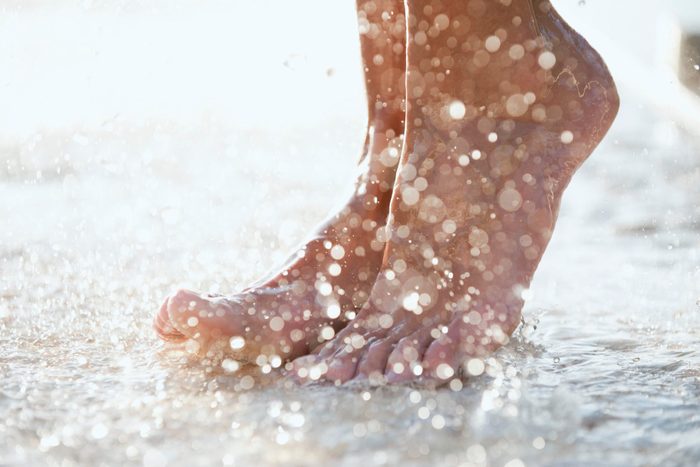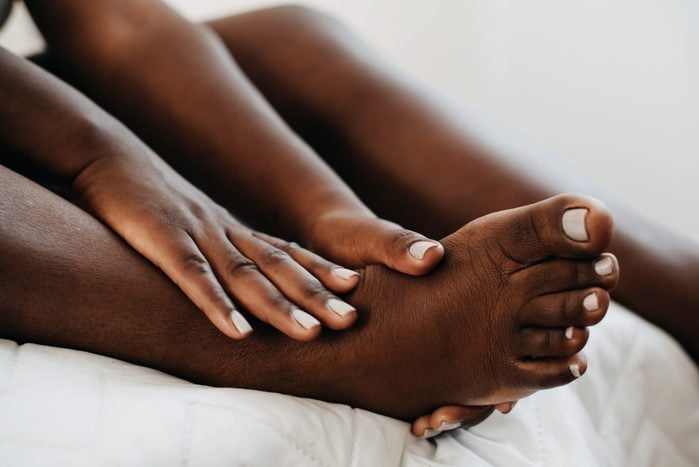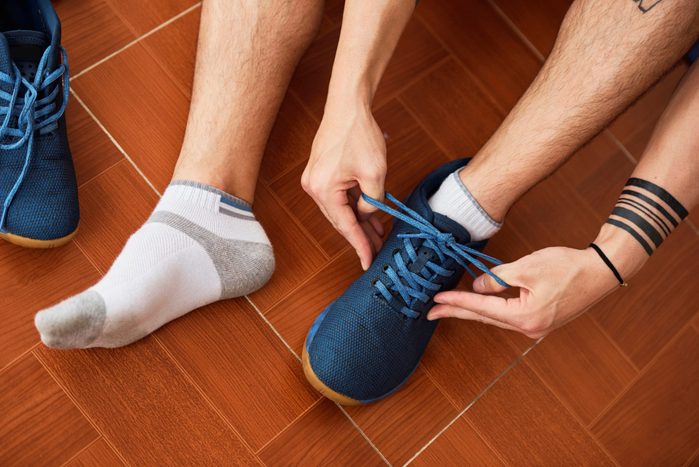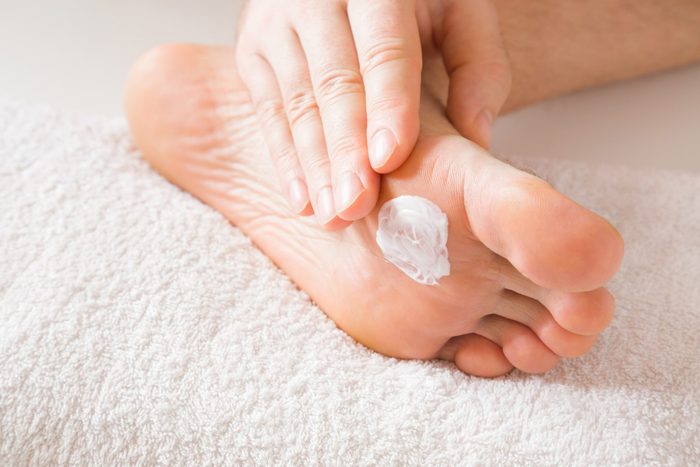
What happens if you don’t wash your feet?
Whether it’s a “quick scrub” kind of morning or a full-on shampooing and shaving day … how often are you really reaching down to wash your feet?
When you’re in a sudsy bath or a soapy shower, you might think getting your feet wet (and a little soap from rinsing off your body wash) is probably good enough to keep your feet clean. However, one medical doctor who specializes in skin wellness suggests this bare-minimum effort to clean your feet isn’t quite enough—and it could lead to some serious infections if you’re not washing your feet properly.
“Washing your feet is an essential aspect of good hygiene,” says Rosmy Barrios, MD. “It is important to thoroughly wash your feet with soap and warm water, paying special attention to the areas between the toes and the soles of the feet. If you do not wash your feet regularly, you may experience a range of negative effects.”
Thankfully, many of these negative effects can be avoided if you’re properly taking care of your feet. According to the Centers for Disease Control and Prevention, this includes washing your feet and drying them completely every day, clipping your toenails, changing your socks and wearing protective footwear.
And if good foot hygiene falls at the very bottom of your priority list, Dr. Barrios says there are a few effects you may want to keep an eye out for.

Your feet could develop a bad odor
Stinky feet are relatively harmless (except to your nose), right? Actually, says Dr. Barrios, while some people are prone to sweatier feet than others, foot odor can also be a sign of not properly washing your feet. “Feet are prone to accumulating sweat and bacteria, which can lead to unpleasant odors,” she says.
In particular, notes the Cleveland Clinic, the bacteria that live on your skin and in your shoes actually eat your sweat, causing your feet to give off an unpleasant smell. Properly cleaning your feet can help manage this so these bacteria stay in check to help you prevent odor and infections.

You could develop fungal or bacterial infections
Because bacteria thrive in moist, dark places (like, you know, the inside of your shoes and socks), infections could be an unfortunate result. These infections can be fungal or bacterial, or in some cases, even viral.
A common fungal infection is athlete’s foot, which is an infection on the skin of your feet. Fungal nail infections can also occur if you’re not properly clipping and cleaning your toenails, which leads to cracked and discolored nails. And while bacterial foot infections are less common, some can occur due to poor hygiene, such as eczema.
Some infections can even have serious consequences, according to Dr. Barrios. “In severe cases, untreated foot infections can lead to amputation, particularly in individuals with compromised immune systems or underlying health conditions such as diabetes. Therefore, it is essential to prioritize foot hygiene as part of your overall hygiene routine.”
That’s why it’s important to change out your socks and wear dry, clean ones every time you wear shoes—and also to give your shoes time to dry out after wearing them.

The skin on your feet could dry out and crack
While dry, crackly skin on your feet (especially around your heels) isn’t particularly a sign of not cleaning your feet, it can indicate that dead skin has built up and that you’re not moisturizing your tootsies properly. Feet can easily dry out if they are exposed to hot water too long (say in a bath or shower), and the proper moisture isn’t applied back to the skin.
As recommended by the American Academy of Dermatology Association (AADA), be sure to lotion your feet after you shower. The AADA suggests the best moisturizer formula for feet contains “10% to 25% urea, alpha hydroxy acid or salicylic acid” and should be slathered on immediately after showering or bathing.
- Rosmy Barrios, MD
- Centers for Disease Control and Prevention: “Foot Hygiene”
- Cleveland Clinic: “4 Ways You Can Avoid Stinky Feet”
- American Academy of Dermatology Association: “How to Care for Dry, Cracked Heels”
